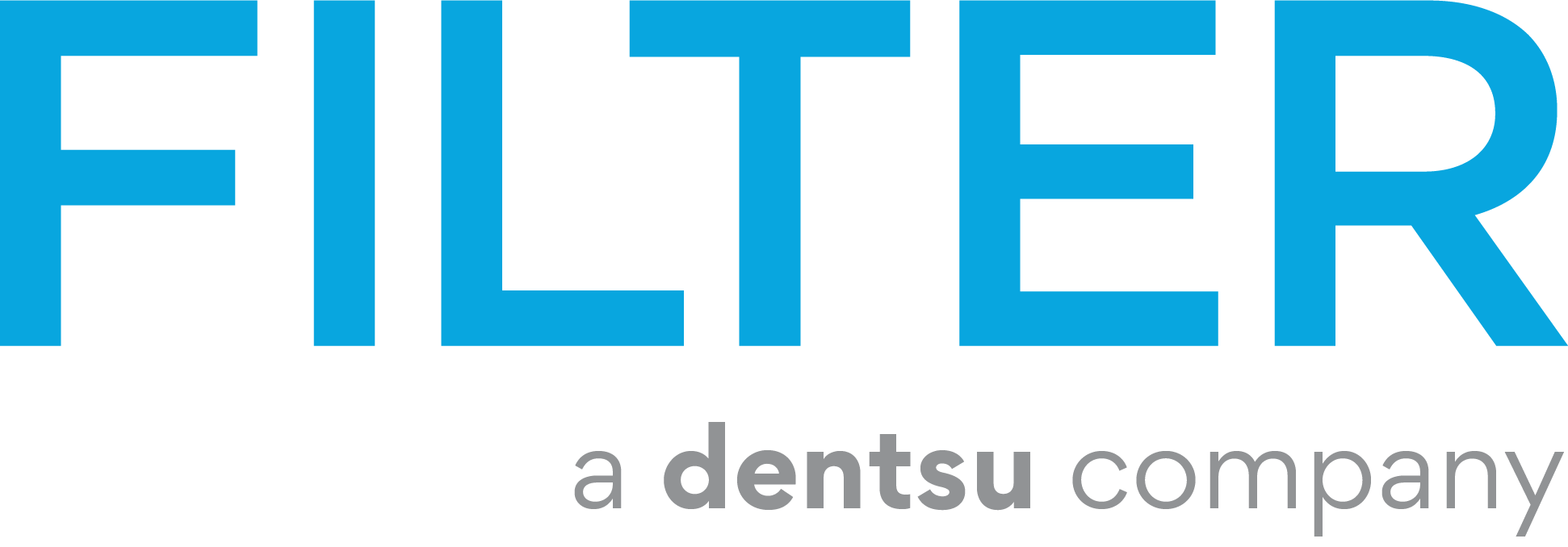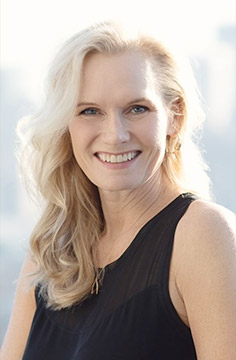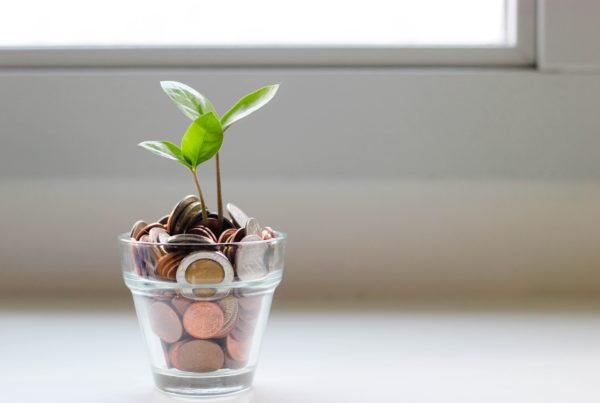This is not an article about the woman behind the brand. This is a story about a business leader ahead of her time. A leader with the courage to strike out on her own at an early age (23!), the perseverance to endure dot-com bubbles and great recessions, the intelligence to anticipate major shifts in business – and the confidence to meet those changes with market disruptions of her own.
As we round out Women’s History Month at Filter, we want to share the company’s origin story, in the original words of its founder and longtime leader, Kristin Knight. Kristin started the company 30 years ago (as Creative Assets), and has shepherded it through tremendous growth – from its roots as a digital talent staffing firm to its position today as a professional services company fueling some of the world’s top brands with embedded-team and in-house agency solutions.
We recently had the privilege to speak with Kristin about her early days, the evolution of Filter and challenges she endured along the way, and her advice for budding female entrepreneurs looking to forge their own bright path in the world of business. Read on for a glimpse into the mind of one of Seattle’s most inspiring and successful female entrepreneurs
Where did the idea for Creative Assets (later to become Filter) come from? What sparked your interest in forming a creative services company?
I was very into art in high school and college and was an early Apple devotee. I studied Advertising in college and planned to work at an agency, but the market was tight when I graduated in 1990. I took a contract job at Microsoft and landed in the advertising group, where I saw that we needed designers that also had computer skills, which was a new concept. It seemed clear to me that as the industry evolved, all design work would be done on computers, which would create a big market for that talent. I decided to leave and round up a group of digital artists, contracting them out to Microsoft, ad agencies/design firms and other in-house marketing departments.
That period also intersected with a shift in the labor market where professionals were starting to work as freelancers and companies were increasing their temporary staffing. I was a good networker, so the timing of the market and my skills all intersected at the right time to build a successful business. I actually didn’t realize I was in the ‘staffing industry’ for a few years – I thought of myself as an artist rep or talent agent.
Did you always know you wanted to be an entrepreneur? Or did something specific happen that made you realize you’re meant to start your own business?
I started Creative Assets when I was 23 after my brief stint at Microsoft. I quickly realized I liked the ability to create something and see an instant impact, which is harder to accomplish in a large company. I am definitely a risk-taker, comfortable with uncertainty and change, and I’m an optimist; all qualities that are well-suited for an entrepreneur. I was interested in both business and art from a young age – looking back I was both the President of the Business Club in high school and Art Student of the year, so it’s funny how my interests have played out in my career, combining the two things I liked, while also helping promote creative people.
I also wanted the ability to choose who I work with, which I’ve always seen as one of the best benefits of owning your own company. Filter has always had a great team and a good culture [take a look at our values!] – and people who don’t fit the culture tend to quickly eject.
In the early days of Filter, what was the biggest challenge you had to face? How did you overcome it?
The biggest challenge by far that the company ever faced was in 2001, after 10 years of steady growth and expansion. We had been experiencing the dot-com boom, had 7 offices in different cities from Seattle to Atlanta, and when the boom turned to bust in April ’02 we lost 70% of our revenue almost overnight. We also had a lot of clients completely fold and not pay so we didn’t collect a huge portion of our A/R. We quickly ran out of cash and no one was hiring, resulting in downsizing 70% of our staff, scaling our offices down to 3 and just trying to survive. Many designers had to leave the field to make a living. Then 9/11 happened which was the nail in the coffin. It was clear that the business wasn’t going to recover for a while, and a really depressing time in our country and the business environment.
Obviously, what is happening in the world right now makes me think of that time. [More on Filter’s take on Agility in the Face of Uncertainty here]. External factors beyond your control hit you and as a business leader, you have to dig deep to survive, leading your teams to make the best out of a really bad situation. I have so much empathy for business owners right now, so many who have shut down or will struggle to survive, as well as all of the employees who are impacted. It’s truly unprecedented and my heart goes out to everyone.
Kristin Knight
Founder & Strategic Advisor
Filter, A Merkle Company
As Filter began to grow, did you ever grapple with feelings of self-doubt? Were there any growing pains?
Growing pains never stop. One thing over the almost 30 years in the company is that it is constantly evolving and changing – and that pace of change has become faster and faster. There are pains you get from growth and expansion – which are typically around keeping quality and culture as you expand, and then pains from evolving our business model as we have done over the last 5 years. Those pivots often require different skills and can mean changing out some team members who may not have the desire to go to the next phase or the skills needed, and those changes can be challenging.
Filter has evolved over the years, from a creative staffing agency to a professional services firm. What are your thoughts on all this growth and change? Did you have any idea the company would become what it is today?
I’m thrilled with the change and seeing the company move up-market to provide higher-value services with a bigger impact to our clients, transitioning out of what has become more of a commodity business. I always had a vision to build a national brand and to truly be in the Digital Marketing/Advertising space versus staffing services, so I am especially proud and excited to be part of Merkle and have access to more clients and resources. I could not have imagined a better path forward for the company.
What is the most rewarding aspect of starting your own company?
The best part is the chance to be a part of so many people’s career journey – I love hearing stories from people I meet of how they worked with us over the years or how we connected them to an opportunity that impacted their career. And I also really enjoy seeing how people who started their careers with us grow and evolve. Many past employees, particularly women, have gone on to have senior leadership roles in other companies or start their own business, which is so exciting to see.
What do you think is the most common mistake women make when starting their own business?
I think women can struggle more with confidence and limiting beliefs, especially beliefs around money, investing in themselves, and feeling they deserve success. Mindset, rather than competence, can hold women back. I sense that the millennial generation of women entrepreneurs is improving with this and I think each new generation will be stronger and more confident.
What advice would you give to a budding female entrepreneur? What’s the first thing she should do to get started?
Put the best possible people around you, even those as informal as advisors and mentors. Learn from them and their mistakes – people who have built businesses like to help and share their knowledge as they’ve been through the ups and downs. Hire for your weaknesses and figure out how to delegate so your business can scale beyond you. And pivot fast when something is not working or the environment changes. Lastly – I think the most important quality of a successful business person is resilience. The current environment is going to test pretty much every entrepreneur. Creativity, steadiness, grit, empathy, and courage are needed now more than ever.
And finally, let’s get a little more personal with a lightning round:
- Favorite book? Man’s Search for Meaning by Viktor Frankl
- Favorite TV show? In the past, Sex in the City. Currently, The Morning Show
- Guilty pleasure? I’m a total massage junkie, it’s my favorite
- Most important item in your bag? I won’t count my phone as that’s too obvious. Definitely my glasses; I am flying blind without them!
- Describe Filter and what it means to you in one word? Pride
The Filter family is proud of our roots, created by not just one of Seattle’s most inspiring entrepreneurs, but also by an incredible woman. In sharing Filter’s origin story, we celebrate Kristin’s invaluable contributions to the digital specialist community and the ever-evolving company she has built.
Happy Women’s History month!







